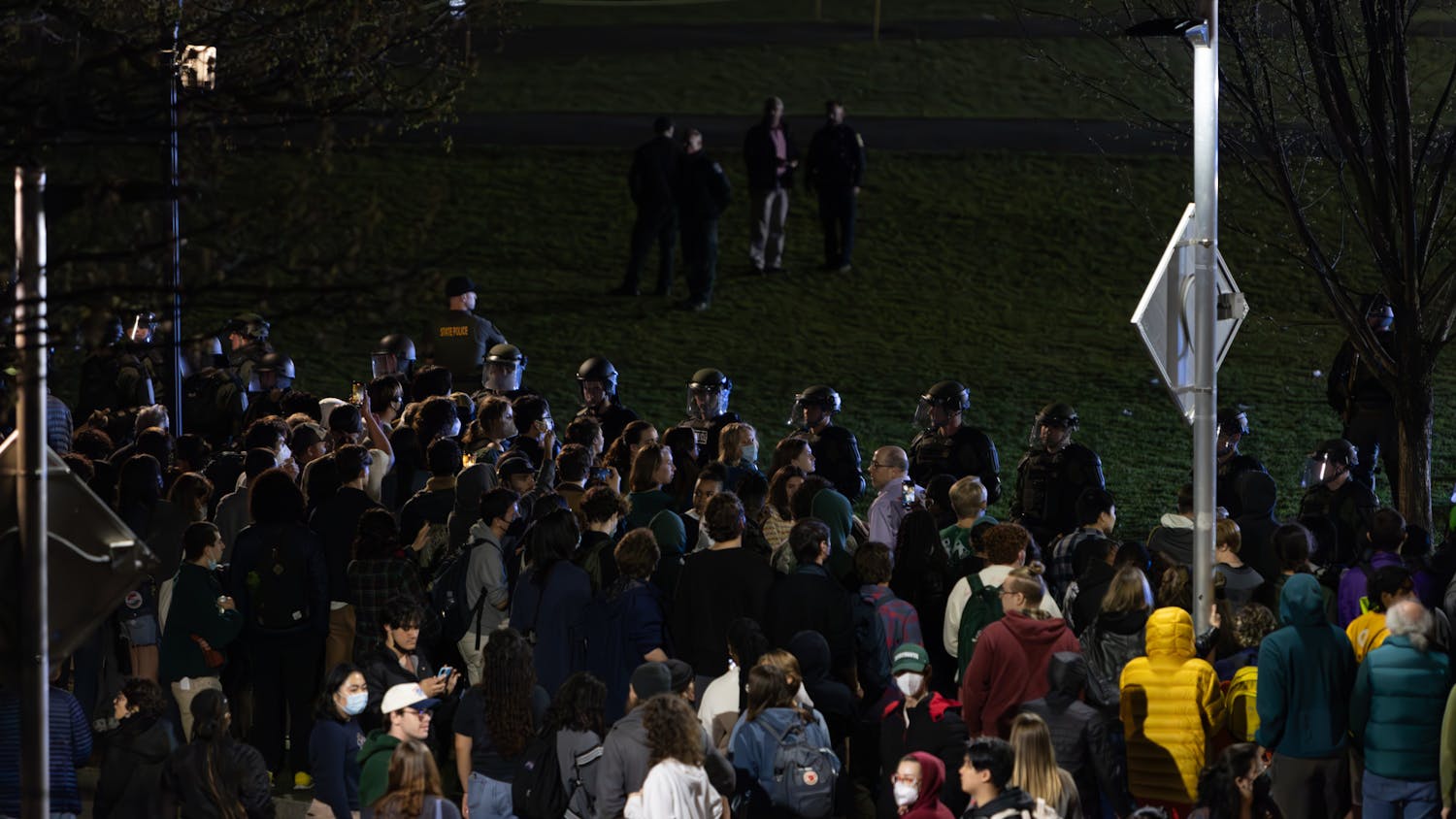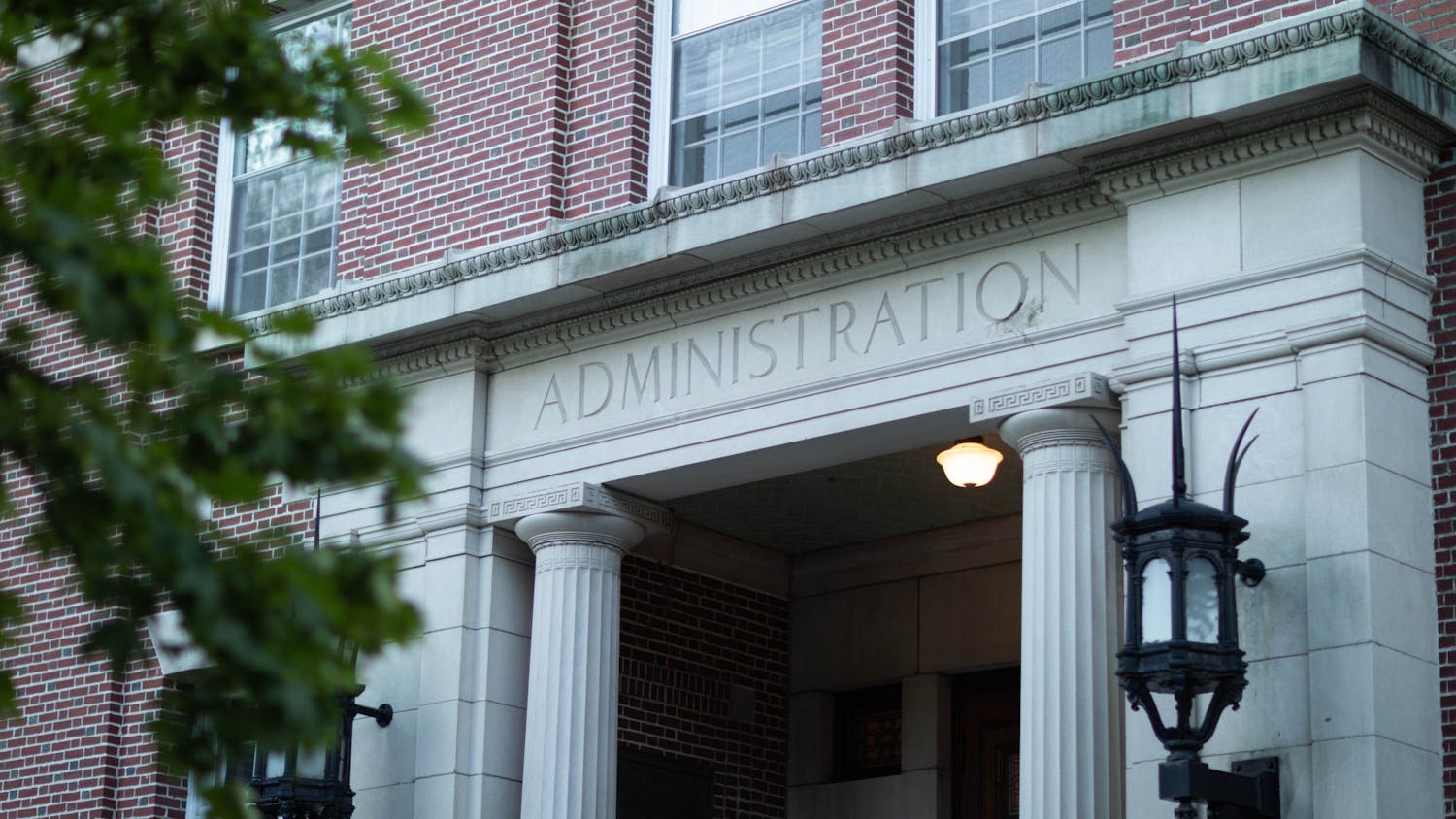Members of the faculty who spoke to The Dartmouth yesterday said they were not very shocked by College Provost Susan Prager's decision to leave, and had mixed responses about her departure's implications for the academic planning process, which she has been heading.
Education Department Chair Andrew Garrod said he was "surprised, but not totally" when he heard her plan to move on from Dartmouth at the end of this academic year.
Members of the faculty and administration alike praised Prager's work ethic and dedication to the College during her time here.
Dean of the Faculty Ed Berger said he admired Prager's institutional vision as well as her ability to listen openly to her co-workers.
"I think that she has a great deal of personal and professional conviction," Berger told The Dartmouth yesterday.
Professor of English Peter Travis echoed Berger's sentiments. Although he said he personally did not know Prager until the past few months -- when he dealt with her extensively in the context of the preliminary academic planning report -- he said he thinks "she has been a wonderful listener and extremely hard working and visionary."
As Dartmouth's chief academic officer over the past two years, Prager has been heading a process to draft a vision for the College's academic future, among other tasks.
However, when the preliminary academic planning committee report was released under Prager's direction Fall term, it raised some questions and concerns among faculty members who thought their departments would be shortchanged under the new plan.
Speaking of the sentiments released during the fall faculty meeting, English Department Chair Peter Travis said, "The faculty felt that the document as an academic vision was inadequate and did not feel that many of the ideas had come from their ranks ... They demanded that meetings be held in December and in January when the faculty could articulate their criticisms of the report and also articulate their vision of the College and its academic future."
However, with Prager's sudden resignation and scheduled departure from the College on July 1, 2001 it is still unknown how the academic planning process will pan out in the coming months and what reaction the faculty will have.
At the time of the report's release to the faculty, Donald Pease of the English department was the professor most vocally opposed to certain aspects of the report, specifically those that propose building bridges between professional schools and the arts and sciences faculty.
"There is a difference in the purpose and the mission of the College of the arts and sciences and each of the professional schools," Pease said at the time, using phrases like "moral consciousness" and "civic and ethical responsibility" to describe the goals of undergraduate college and the word "vocational" to describe graduate schools.
However, not all faculty members were perturbed by the preliminary report and Prager's role in its creation.
"She has been a vocal supporter for the computer science department, and has an aggressive vision for computer science here, and I hate to see that vision go away," CS department Chair David Nicol said.
Nicol recalled that throughout Prager's time here, she has been very active in expanding the computer science department.
However, enthusiasm like Nicol's for the proposed changes have contributed to concerns among the liberal arts faculty over the past months.



